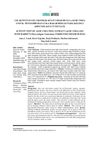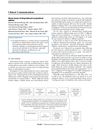
Search
for
Sort by
Research
150-180 / 719 results

research Doctor, My Armpit Hair Has Turned Yellow! Malodorous Yellowish Axillary Hair in an Adolescent Patient
A 15-year-old boy's smelly, yellow armpit hair improved with clindamycin treatment.

research Tissue Engineering of the Reproductive System
Cell transplantation faces challenges in genitourinary reconstruction, but alternative tissue sources and microencapsulation show promise.

research Development of Finasteride Polymer Microspheres for Systemic Application in Androgenic Alopecia
Finasteride microspheres help reduce hair loss for up to eight weeks with fewer side effects.

research Application of Extracellular Vesicles From Mesenchymal Stem Cells Promotes Hair Growth by Regulating Human Dermal Cells and Follicles
Using extracellular vesicles from stem cells can help hair grow by affecting scalp cells and hair follicles.
research Treatment of Pseudofolliculitis With a Pulsed Infrared Laser
Pulsed infrared laser can effectively reduce symptoms of pseudofolliculitis barbae.

research Bald’s Leechbook and the Construction of Male Health in Anglo-Saxon England
The Leechbook shows how hair and sexual health were key to medieval masculinity and some remedies may still be useful.

research Refining Techniques in Eyebrow Transplantation
Eyebrow hair transplants have high patient satisfaction and require surgeons to have artistic and technical skills.

research The First Case Report of Kerion-Type Scalp Mycosis Caused by Aspergillus Protuberus
A rare fungal infection on a child's scalp was successfully treated with antifungal medication.

research Perifolliculitis Capitis Abscedens Et Suffodiens Treatment With Tumor Necrosis Factor Inhibitors and Baricitinib: A Case Report and Literature Review
A 15-year-old boy's severe scalp condition improved significantly with adalimumab and baricitinib treatment.

research Avoiding Pitfalls in Planning a Hair Transplant
Proper planning for hair transplants is crucial for natural results, with careful patient selection and strategic graft placement being key factors.

research Platelet Therapeutics to Improve Tissue Regeneration and Wound Healing: Physiological Background and Methods of Preparation
Platelet-rich treatments can help improve wound healing and tissue repair.

research An Important Role of Cutaneous Lymphatic Vessels in Coordinating and Promoting Anagen Hair Follicle Growth
Skin lymphatic vessels are essential for hair growth.

research Gene Therapy: Recent Advances and Applications in Dermatology
Gene therapy shows promise for treating skin disorders and cancer, but faces technical challenges.

research Type 2 Innate Immunity Regulates Hair Follicle Homeostasis to Control Demodex Pathosymbionts
A specific immune response helps control mite populations on the skin, maintaining healthy hair follicles.

research The Role of the Microbiome in Scalp Hair Follicle Biology and Disease
The scalp's microorganisms significantly affect hair health and disease.

research Adult Onset Isolated Hypogonadotropic Hypogonadism: A Cause of Secondary Amenorrhea
A 23-year-old woman's missed periods were caused by a rare genetic disorder treated with hormone patches.

research An Unusual Cause of Primary Amenorrhea
The 18-year-old girl likely has a condition called müllerian agenesis, which caused her to not have a uterus and experience no menstrual periods.
research Biomimetic Scaffolds: A Novel Approach to Three-Dimensional Cell Culture Techniques for Potential Implementation in Tissue Engineering
Biomimetic scaffolds are better than traditional methods for growing cells and could help regenerate various tissues.

research Chitosan Hydrogel as Tissue Engineering Scaffolds for Vascular Regeneration Applications
Chitosan hydrogels are promising for repairing blood vessels but need improvements in strength and compatibility.

research Mesenchymal Stem Cell-Derived Protein Extract Induces Periodontal Regeneration
MSC-protein helps regenerate gum tissue and bone.
research Diseases of Honeybee (Apis Mellifera)
Honeybees face serious threats from various diseases, but beekeepers use several methods to manage and control them.

research Activity Test of Aloe Vera Peel Extract Gel on Rabbit's Minor Burns
Aloe vera peel extract gel helps speed up the healing of minor burns in rabbits.

research Polygonum Multiflorum Extract Supports Hair Growth by Elongating Anagen Phase and Abrogating the Effect of Androgen in Cultured Human Dermal Papilla Cells
Polygonum multiflorum extract helps hair grow longer and fights the effects of hormones that cause hair loss.

research Alopecia and the Microbiome: A Future Therapeutic Target?
The microbiome may be linked to hair loss and could be a target for new treatments.

research Formulation and Evaluation of Hair Fall Control Herbal Hair Oil
The herbal hair oil made from various plants might be a good alternative to synthetic hair loss treatments.

research Epidermal Growth Factor Receptor Inhibitor-Induced Symmetrical Drug-Related Intertriginous and Flexural Exanthema: Should You Discontinue the Offending Agent?
You might not need to stop cancer treatment if you get a rare skin reaction from EGFR inhibitors, as skin treatments can help manage it.

research Novel Causes of Drug-Induced Occupational Asthma
Four new substances—minoxidil, ferrimanitol ovalbumin, clarithromycin, and glucosamine-hydrochloride—can cause occupational asthma.
research M-CSF-Stimulated Myeloid Cells Can Convert Into Epithelial Cells to Participate in Re-Epithelialization and Hair Follicle Regeneration During Dermal Wound Healing
M-CSF-stimulated myeloid cells can turn into skin cells and help heal wounds and regrow hair.

research The Techniques and Methods of Hair Transplantation
The document concludes that hair transplant methods are often selected for provider convenience over patient benefit, highlighting the need for less invasive techniques and careful physician involvement for better results.